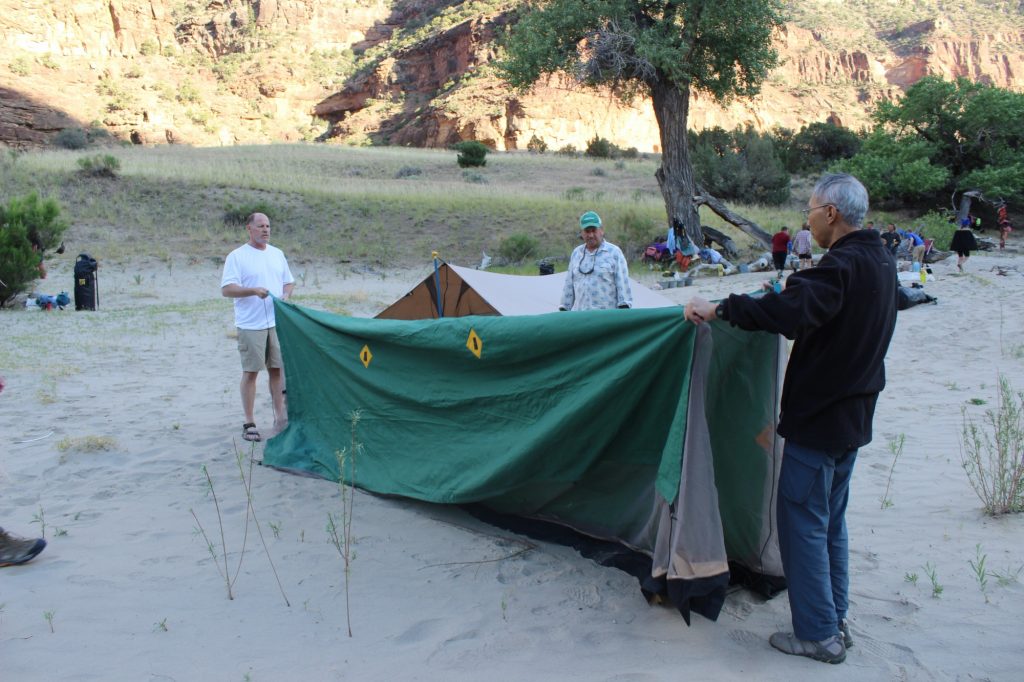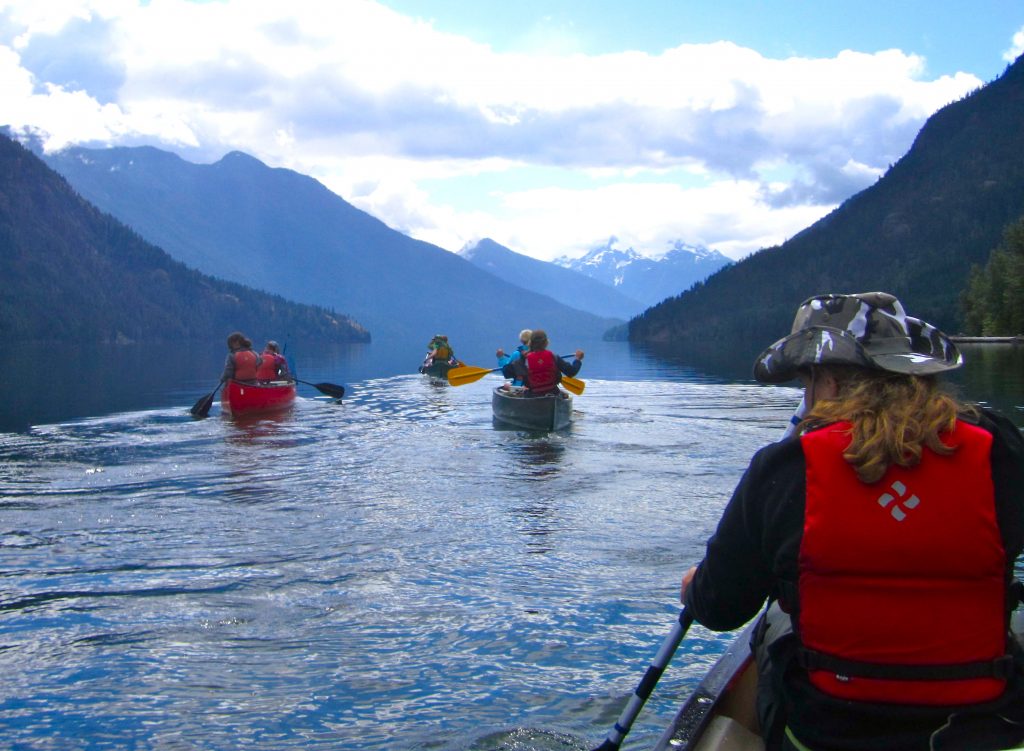Last September, I hiked a section of the Colorado Trail from Durango to Copper Mountain. A few nights into the first week, I ended up camping with a woman from Birmingham named Martha, and her dog, Angel. Martha and Angel were an inspiring pair, not just because Martha conducted such lovely conversation or because Angel provided much-needed kisses and cuddles. No, it was Martha’s age that impressed me—she informed me she was in her early 70s, and Angel was about the same in dog years. The two of them were busting out almost the same daily mileage as me, a 29-year-old outdoor professional who lives at altitude year-round.
Let me open this piece by saying: it will never cease to surprise me how often working and recreating in the outdoors forces me to check my assumptions at the trailhead. Of course, I figured there were 60- and 70-year-olds scattered out there, getting after the good stuff, bagging the same miles and peaks as people half their age, but I assumed they were insane. I imagined they were sunbaked automatons with impossible reserves of energy, former Olympians and athletic demi-gods. Martha, however, was just a nice lady from Alabama. She had gray hair and a self-effacing sense of humor. She had achy feet and no gold medals to speak of. She moved gently and deliberately and laughed when she mused over how long it took her to travel a single mile.
I like uncovering my own assumptions. I like busting up the assumptions of others as well—it’s part of why I work for Outward Bound. So much of our job—whether behind the scenes like myself, or front and center in the field like our Instructors—has to do with teaching people how to identify their own biases, how to bear witness to their personal paradigm, and then how to shift it that much closer to tolerance, resiliency and compassion. This is important work to do with teenagers. It is even more important to do with adults.

Most people who ask about my job are surprised to find Outward Bound offers courses for adults beyond college-age. They’re even more surprised to discover that, for our 2018 season, the Outward Bound School in Colorado had almost 50 students aged 30 and up. Their next reaction, usually, is excitement—I can see them thinking, that’s me! That’s something I could do! But it’s a long leap from “could” to “can.” I’ll see these same people a week later and they’ve already dreamed up a whole list of reasons why they can’t take a course. Something tells me it’s not just lack of information that keeps them from enrolling.
The older we get, the more rigid we become. It becomes harder and, let’s be honest, less necessary to see beyond our social spheres. Plus, we no longer have parents or teachers pushing us toward new experiences. Instead, we have our jobs, our kids, our people. We have our spouses and only so much PTO. We have our route to the grocery store down pat. What’s more, we don’t have time. And we don’t have the same bodies we did in high school.
Stop. Listen. There are stories we tell ourselves about every age and stage—our twenties were a black hole, we say. Our thirties will be better, we promise, then our forties, then our fifties, sixties, and so on. Meanwhile, there’s all that dubiously anecdotal evidence floating around in the culture at large, from old sitcoms and new social media, or from that one crotchety neighbor down the street who’s afraid of everything. The evidence they offer up insists there’s no life after marriage, no time after kids, no chance or (worse!) no need to change your world once your world feels made. This is simply not true, and even if it were, is that not an even better reason to drop what we’re doing?

We’re so busy trying to convince the world we have it together—look! I’m a mentor! I’m a manager! I’m a mom!—that we forget what it means to be a student. We forget what a gift it is to be guided. Being on course offers the opportunity to learn unabashedly from talented outdoor educators experienced in pushing both hard skills and emotional growth, not to mention what a fellow student can teach you.
The brief night I spent camping with Martha ended with tea and stories about her grandchildren. We both took some ibuprofen for our aches and pains—my knees were killing me after some big mileage and a heinous descent early in the day. It was difficult at that point not to feel like my body had betrayed me, but watching Martha hum as she packed up dinner and put Angel to bed helped to center my perspective. I first started backpacking to prove to myself and others that I was strong. It took me many years to realize the reason I keep taking such trips is because they teach me, invariably, how to be weak. People want to know, even after I tell them Outward Bound is open to adults, whether our courses are really only good for kids in trouble. I tell them yes, in fact, that’s exactly who they’re good for, and then I challenge them to show me a forty-year-old who is not, on some level, another kid in trouble. The whole point of an Outward Bound course is to meet our students where they are—emotionally, physically, mentally. No matter your age or fitness level, regardless of your experience or knowledge of the outdoors, there’s a place for you at Outward Bound. And as someone admittedly prone to believing “it’s too late,” I hope to take this chance to disabuse us all of the notion that the time behind us dictates what we’re able to do with the time in front of us.
There is more in you than you know. I hope I see you out there to find out about it.
About the Author
Kate is a logistics coordinator for the Rocky Mountain Program at the Colorado Outward Bound School in Leadville, Colorado. She holds an MFA from the University of Montana and currently splits her time between working in the high country and relaxing in Denver, where she walks her sister’s dog and eats her parents’ food.
OTHER POSTS YOU MAY LIKE
Read More
Read More
Read More




